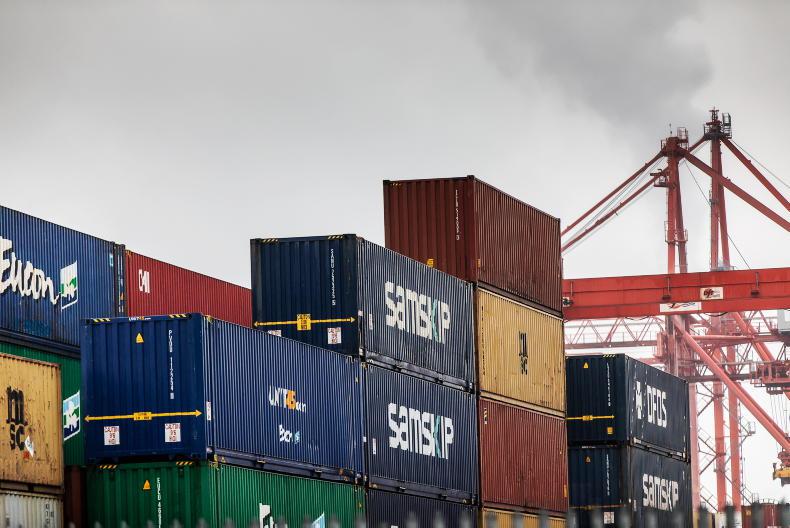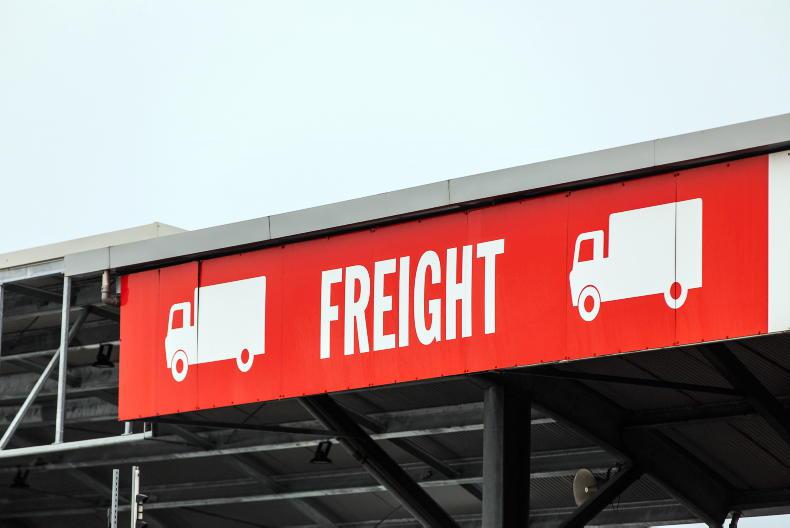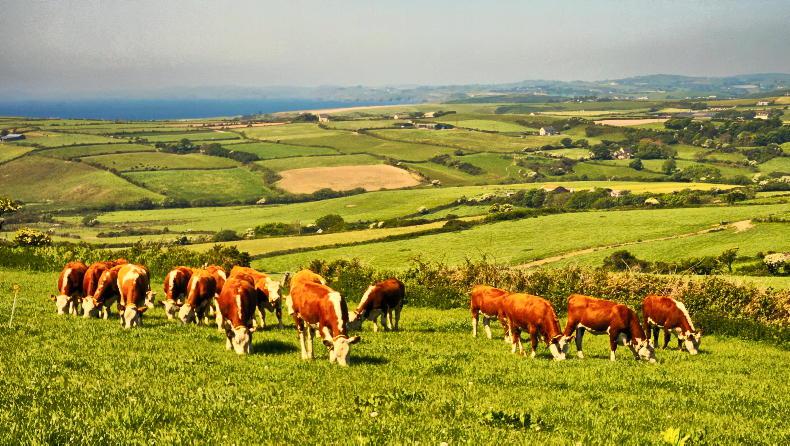Some of the new checks on food and products of animal origin required as a result of Brexit are already leading to considerable red tape confusion and hold-ups for goods coming in through Dublin Port from the UK market.
While trade volumes coming in through Dublin Port have been noticeably low since the start of the new year, Government inspectors at the port report that they are already seeing a number of issues with goods being imported from the UK market, particularly in relation to sanitary or phytosanitary (SPS) checks on food and products of animal origin.

Containers arriving from Great Britain that are carrying goods such as food or products of animal origin will now need to be physically checked by the Department of Agriculture.
Hazel Sheridan, a senior inspector with the Department of Agriculture, said it has been noticeable that quite a high percentage of importers were not providing advance notifications and documentation for food or products of animal origin.
SPS certificates
Sheridan added that officials from the Department of Agriculture stationed at Dublin Port were also seeing lots of issues around SPS health certificates on goods, which are certificates needed for all imported goods subject to SPS measures.
“There are two really significant things businesses need for SPS checks on goods.
"The first is to provide advance notification [to the Department of Agriculture] so we know that the consignment is on the way. At the moment, there is quite a percentage of businesses that aren’t providing that advance notification,” said Sheridan.
“And the second very important thing is that all SPS goods need to be accompanied by a health certificate, which is either a veterinary health certificate for animal-based products or a plant health certificate for plant products.
"Right now, we’re seeing lots of issues with these health certificates and that’s not surprising, because these are complex documents,” she added.
Trade volume
Sheridan said that the percentage of trucks arriving at Dublin Port that required SPS checks was much lower than the Department of Agriculture had anticipated from analysing trade volumes in previous years.
Of the 600 to 700 trucks that transited through Dublin Port each day over the last week, Sheridan said as little as 30 to 40 trucks a day are currently being stopped for SPS checks.
However, this may be as a result of product stockpiling in the last months of 2020.
Sheridan said she expects the percentage of trucks that will require SPS checks to increase significantly in the weeks ahead.
Every year, around 850,000 cargo units (trucks and containers) arrive at Dublin Port from the UK market.
A very significant percentage of these cargo units contain food or products of animal origin, which will need to be physically checked at Dublin Port as the UK is now a third country outside the EU single market.

The percentage of trucks arriving at Dublin Port that required SPS checks has been much lower than anticipated so far.
“I would encourage businesses to contact us in the Department of Agriculture to help them with SPS checks. At the moment we’re getting a very low volume of calls on this issue,” she added.
The Department of Agriculture is hosting a webinar on Thursday 14 January at 3pm to provide businesses that import food and products of animal origin with information on the documentation, procedures and health certificates that are needed to meet SPS checks on products coming into Ireland from Great Britain.
Some of the new checks on food and products of animal origin required as a result of Brexit are already leading to considerable red tape confusion and hold-ups for goods coming in through Dublin Port from the UK market.
While trade volumes coming in through Dublin Port have been noticeably low since the start of the new year, Government inspectors at the port report that they are already seeing a number of issues with goods being imported from the UK market, particularly in relation to sanitary or phytosanitary (SPS) checks on food and products of animal origin.

Containers arriving from Great Britain that are carrying goods such as food or products of animal origin will now need to be physically checked by the Department of Agriculture.
Hazel Sheridan, a senior inspector with the Department of Agriculture, said it has been noticeable that quite a high percentage of importers were not providing advance notifications and documentation for food or products of animal origin.
SPS certificates
Sheridan added that officials from the Department of Agriculture stationed at Dublin Port were also seeing lots of issues around SPS health certificates on goods, which are certificates needed for all imported goods subject to SPS measures.
“There are two really significant things businesses need for SPS checks on goods.
"The first is to provide advance notification [to the Department of Agriculture] so we know that the consignment is on the way. At the moment, there is quite a percentage of businesses that aren’t providing that advance notification,” said Sheridan.
“And the second very important thing is that all SPS goods need to be accompanied by a health certificate, which is either a veterinary health certificate for animal-based products or a plant health certificate for plant products.
"Right now, we’re seeing lots of issues with these health certificates and that’s not surprising, because these are complex documents,” she added.
Trade volume
Sheridan said that the percentage of trucks arriving at Dublin Port that required SPS checks was much lower than the Department of Agriculture had anticipated from analysing trade volumes in previous years.
Of the 600 to 700 trucks that transited through Dublin Port each day over the last week, Sheridan said as little as 30 to 40 trucks a day are currently being stopped for SPS checks.
However, this may be as a result of product stockpiling in the last months of 2020.
Sheridan said she expects the percentage of trucks that will require SPS checks to increase significantly in the weeks ahead.
Every year, around 850,000 cargo units (trucks and containers) arrive at Dublin Port from the UK market.
A very significant percentage of these cargo units contain food or products of animal origin, which will need to be physically checked at Dublin Port as the UK is now a third country outside the EU single market.

The percentage of trucks arriving at Dublin Port that required SPS checks has been much lower than anticipated so far.
“I would encourage businesses to contact us in the Department of Agriculture to help them with SPS checks. At the moment we’re getting a very low volume of calls on this issue,” she added.
The Department of Agriculture is hosting a webinar on Thursday 14 January at 3pm to provide businesses that import food and products of animal origin with information on the documentation, procedures and health certificates that are needed to meet SPS checks on products coming into Ireland from Great Britain.











SHARING OPTIONS